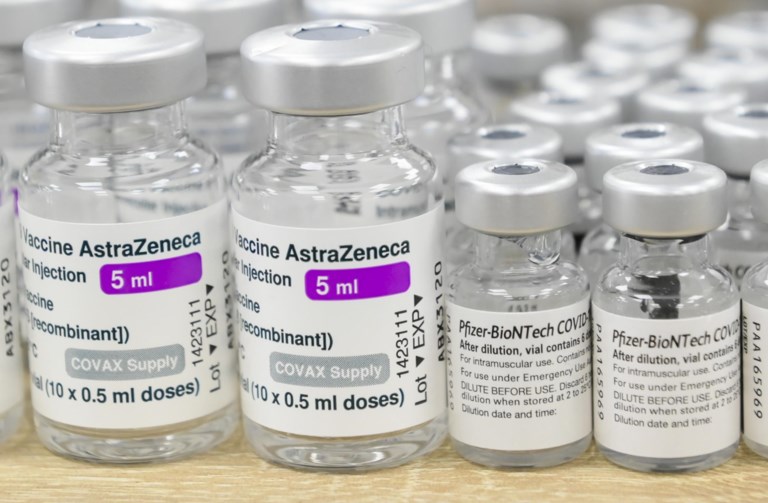As of 16 July, it will be possible to get a second coronavirus shot from Pfizer/BioNTech after a first dose of AstraZeneca's vaccine in the Netherlands, announced Dutch Health Minister Hugo de Jonge.
The Health Council stated on Monday that administering a Pfizer shot after an AstraZeneca one is not only possible, but also protects people just as well as, or even better than, two doses of AstraZeneca.
"It is great that we can now offer this 'mix and match'," said De Jonge in a press release.
Recipients of two different vaccines may experience more frequent side effects such as fever, fatigue, chills, headaches or muscle aches, but they pass soon, according to the release.
"Although with two AstraZeneca vaccines you are just as well protected against serious illness, we also saw doubters," he said. "I am glad that we can now persuade this group to be fully vaccinated."
Related News
- First Moderna, then Pfizer? Belgium studies if first and second shot can be different
- Two doses of all EU vaccines protect against Delta variant, EMA says
- Mixing AstraZeneca and Pfizer vaccine leads to better immune response, research shows
Doing it the other way around (the first shot with Pfizer and the second with AstraZeneca) is not recommended by the Health Council, as this combination provides less protection than two Pfizer shots.
De Jonge estimates that most of those who have had an AstraZeneca shot will opt to get a second dose of the Pfizer vaccine, and even advises them to do so, as it will result in people being fully vaccinated more quickly.
"As vaccination coverage that is as high and homogenous as possible is crucial in countering a resurgence of the coronavirus in the autumn," he added.
The Council's decision was based on recent British antibody research, which shows that the combination of a first vaccination with AstraZeneca and a second vaccination with Pfizer protects against serious illness just as well as two doses of the AstraZeneca vaccine.
Earlier in June, a study conducted by researchers from the German University of Saarland also showed that combining the two vaccines gave a better immune response.
What about Belgium?
In some EU countries, such as Germany, Spain and France, combining two vaccines is already happening, while other countries are awaiting further research.
Belgium, however, is not allowing such a vaccine switch for the time being, despite four of its research centres currently conducting a similar study.
Someone who received their first shot of AstraZeneca’s vaccine in the country will also receive a second shot of the same jab – as recommended by the European Medicines Agency (EMA).
During a press conference last week, the EMA stated that it was “too early” to give a definitive recommendation on mixing two different vaccines, but added that preliminary data show that it is likely both effective and safe.
Additionally, while scientific evidence shows that mixing vaccines might be possible, professor of Vaccinology Corinne Vandermeulen (KU Leuven) said last month that it would also be "a logistical nightmare."
“These studies are particularly important for the third dose,” she told De Standaard. “Now we know that we probably do not need to take into account which vaccine someone got first.”

